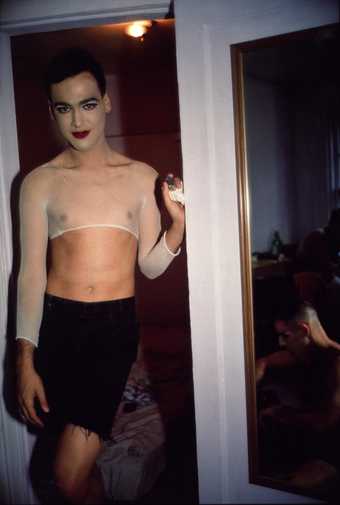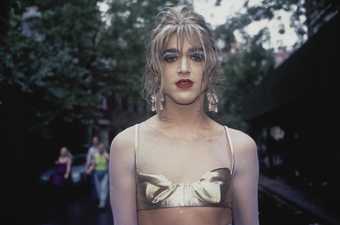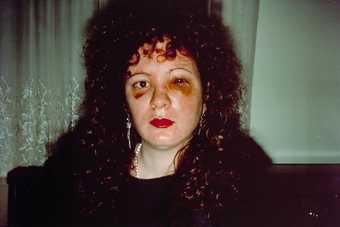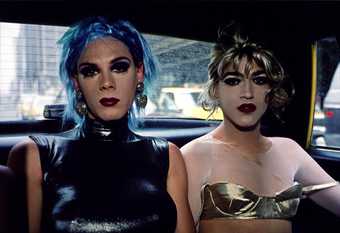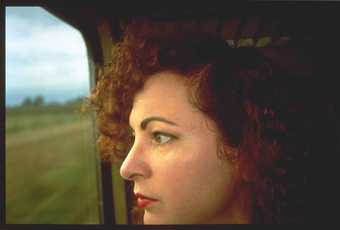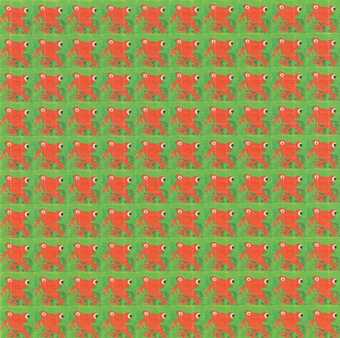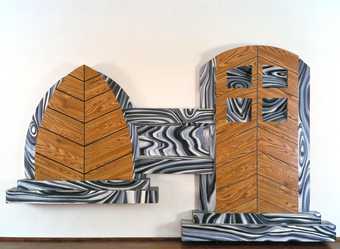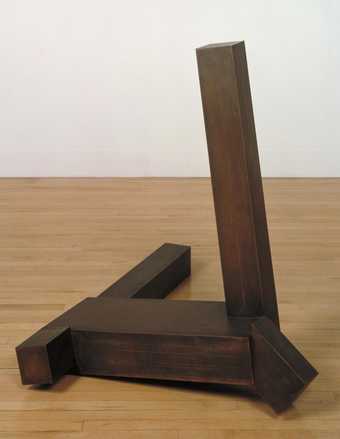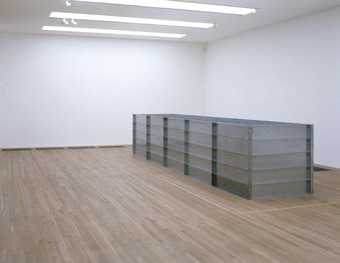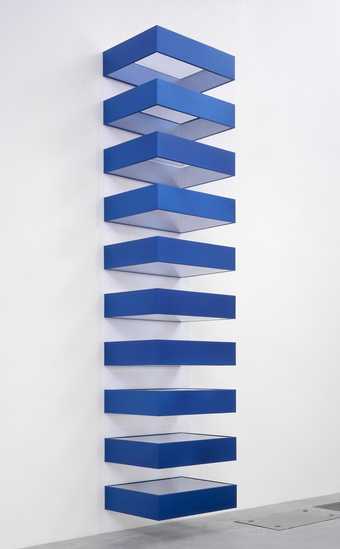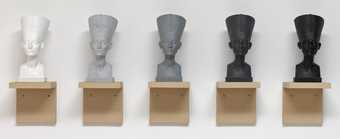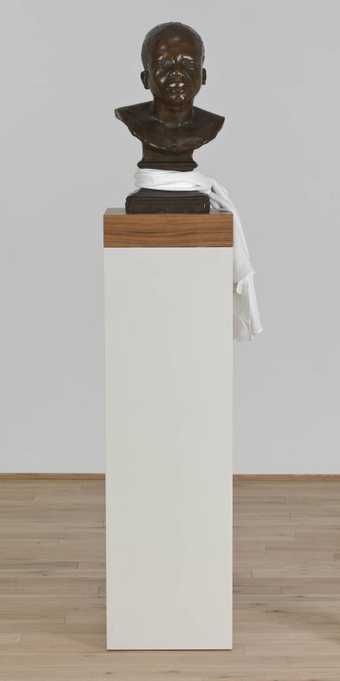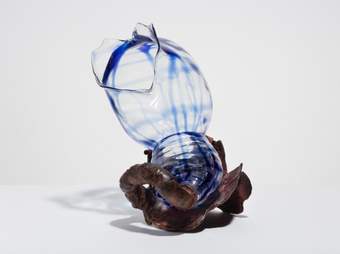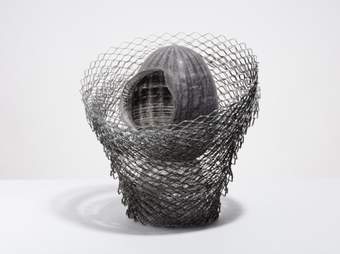Sorry, no image available
- Artist
- Terry Adkins 1953–2014
- Medium
- Bass drums, mufflers
- Dimensions
- Overall display dimensions variable
- Collection
- Tate
- Acquisition
- Purchased using funds provided by the 2013 Outset / Frieze Art Fair Fund to benefit the Tate Collection 2014
- Reference
- T14011
Summary
Muffled Drums (from Darkwater) 2003 is a sculptural installation that is comprised of found objects, in this case vintage bass drums that can be stacked in a tower or in other configurations. As with many of Adkins’s works, Muffled Drums (from Darkwater) addresses popular music and musical history, combining this with a sculptural practice rooted in the found object and in performance. The drums used in this work originate from American drum and bugle corps; the biggest drum, however, bears the name of the Lone Wolf Recital Corps, the performance group that Adkins founded in 1986. Such bands characterised forms of popular social activity within African American communities during the early twentieth century that also coincided with the heyday of jazz and blues music. Adkins aims to celebrate such communal, musical activity through his work, while simultaneously commemorating struggles against racial prejudice.
The title of the work refers to the book Darkwater: Voices from Within the Veil (1920), by African American civil rights foundational figure, activist and intellectual W.E.B. Du Bois (1868–1963). The book combines autobiography with essays, spirituals and poems all written by Du Bois, creating a hybrid literary work that caused controversy on its publication for its militant call for social, political and economic reforms. Du Bois, a co-founder of the National Association for the Advancement of Colored People (NAACP) in 1909, was also a prolific author, editing the NAACP journal The Crisis and authoring numerous essays, articles and books including The Souls of Black Folk (1903), in which he coined the concept of double-consciousness to define African American experience. Darkwater was Du Bois’s sixth book and was published at the height of his political influence, but also at a time when the white supremacist Ku Klux Klan were active and Du Bois was focused on securing anti-lynching legislation. It is considered a companion piece to The Souls of Black Folk and allied to the concept of double-consciousness. At the outset of his career, in 1975, Adkins studied at Fisk University in Nashville, Tennessee, where Du Bois also studied. Muffled Drums (from Darkwater) was made for a solo exhibition in 2003 at the Arthur Ross Gallery of the University of Pennsylvania in Philadelphia. The exhibition, titled Darkwater: Recital in Four Dominions after Du Bois’s text, was a tribute to the activist and author. In the show Adkins examined Du Bois and his work by way of four ‘dominions’: sculpture, prints, documents and music, all of them relating to Du Bois’ literary output and contributions.
Much of Adkins’s work has been activated through performance, particularly of a musical kind; thus he calls his exhibitions ‘recitals’. Working with members of the Lone Wolf Recital Corps, Adkins activates his sculptures through improvisational playing and singing, spoken word, costumes and recorded sound. When Adkins previously performed using Muffled Drums (from Darkwater), it was arranged with the drums stacked into three shorter towers rather than one totem-like one. Adkins wore brass bells around his neck and, facing the audience, with his back to the drums – one tower arranged diagonally either side of Adkins and one directly behind – he played them with a drumstick in each hand while ringing the bells periodically through the movement of his body. In the performance, titled Muffled Drums Lynch, a narrator recited the dates, names – or the word ‘unknown’ –, locations and supposed crimes of African American men who have been lynched, while Adkins repeated words drawn from the crimes named in this brutal litany, which include rape, murder, robbery, assault and, ironically, ‘race prejudice’. Some of these crimes were qualified by terms such as ‘attempted’ and ‘suspected’. By the end of the performance, Adkins would repeat seemingly random combinations of the words ‘unknown’, ‘attempted’ and ‘suspected’.
Further reading
Annette DiMeo Carlozzi, Terry Adkins: Towering Steep, exhibition catalogue, Friede-Strauss Galleries, Dartmouth College, Hanover, New Hampshire 2003.
Tanya Barson
November 2013
Does this text contain inaccurate information or language that you feel we should improve or change? We would like to hear from you.

